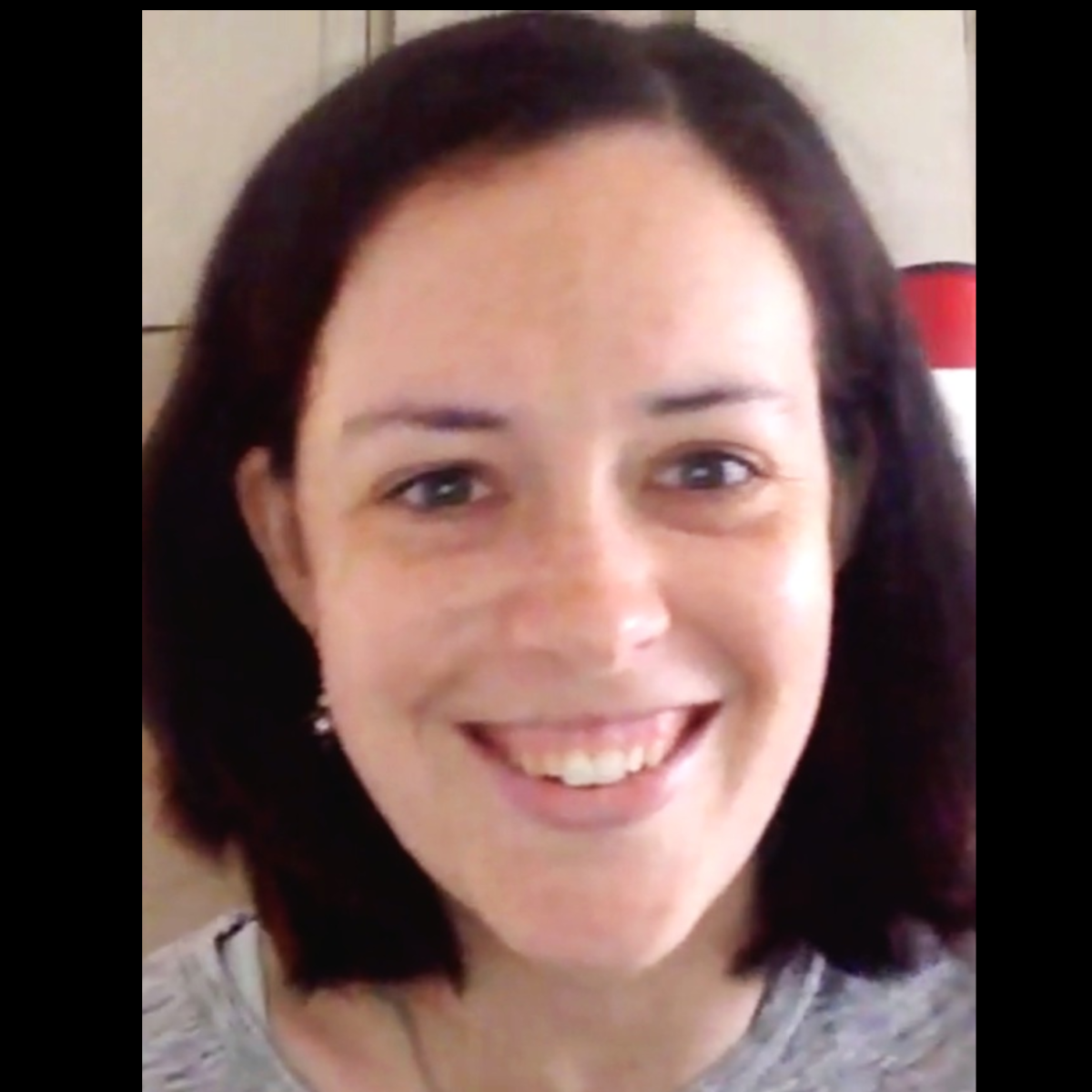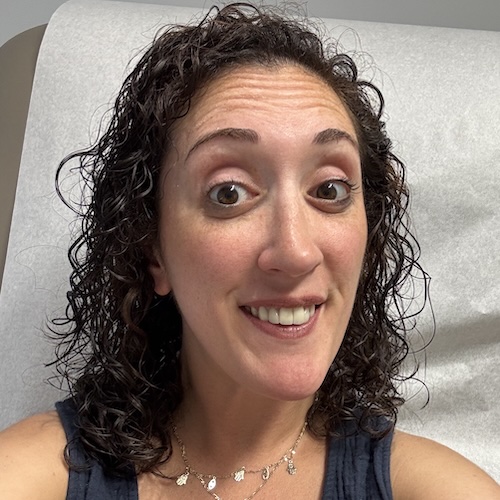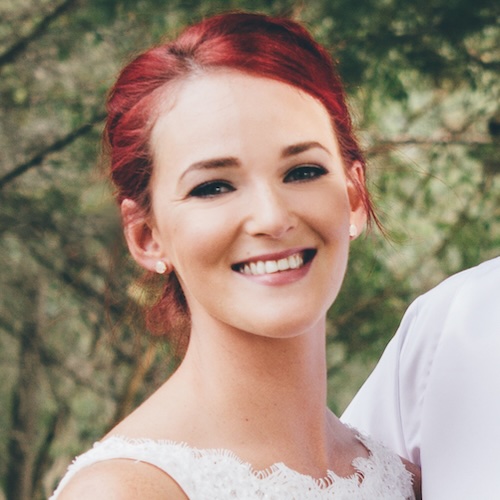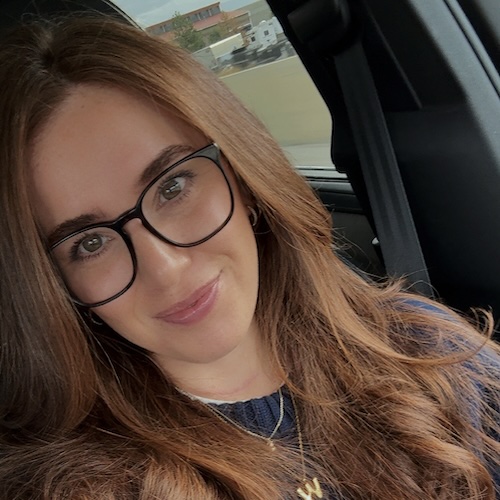Sarah’s Stage 1 Papillary Thyroid Cancer Story
Sarah shares her stage 1 papillary thyroid cancer story, undergoing a total thyroidectomy and radioactive iodine treatment.
In her story, Sarah highlights how she navigated life after a cancer diagnosis, including self-advocacy as a patient, approaching the issue of fertility preservation, the importance of having caregivers during treatment, and dealing with loved ones and their emotions. Thanks, Sarah!
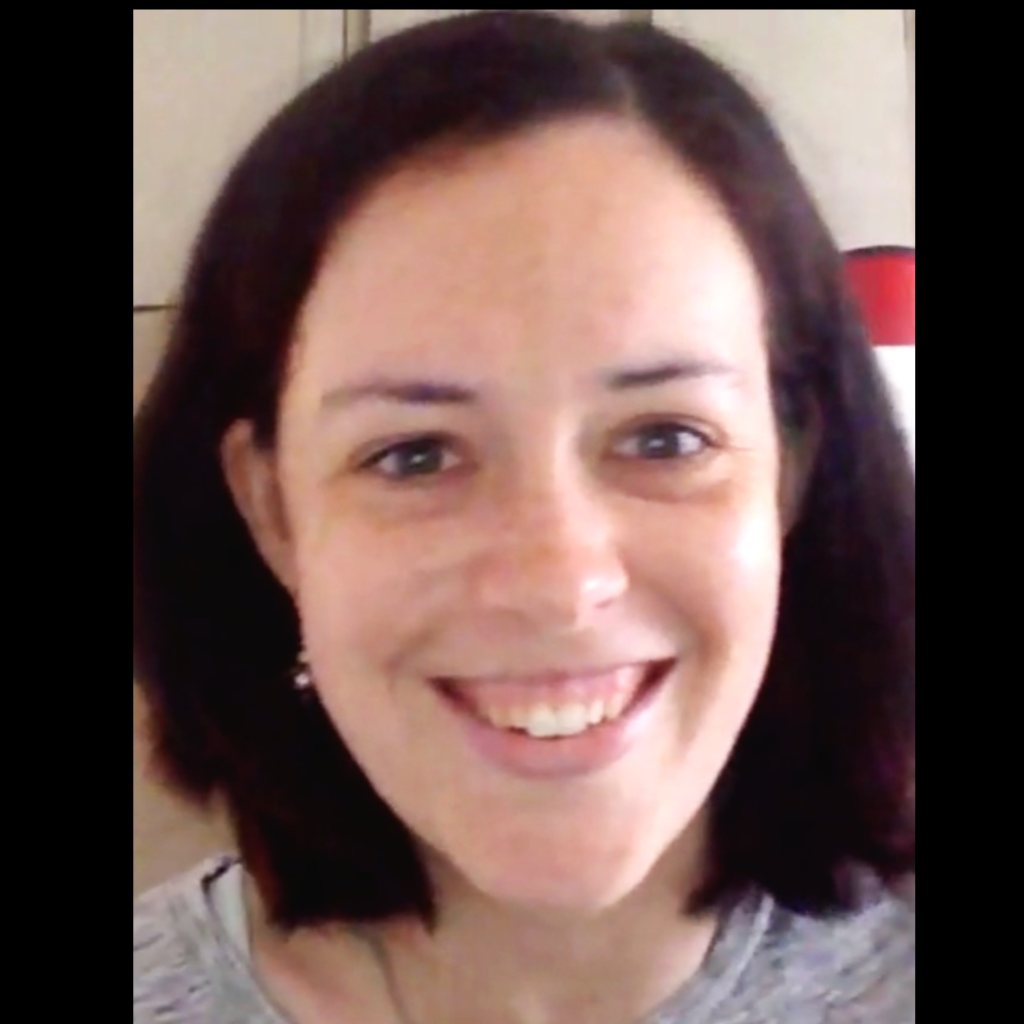
- Name: Sarah J.
- Diagnosis (DX):
- Thyroid cancer
- Papillary
- Age at DX: 28
- 1st symptoms: Enlarged thyroid
- Treatment:
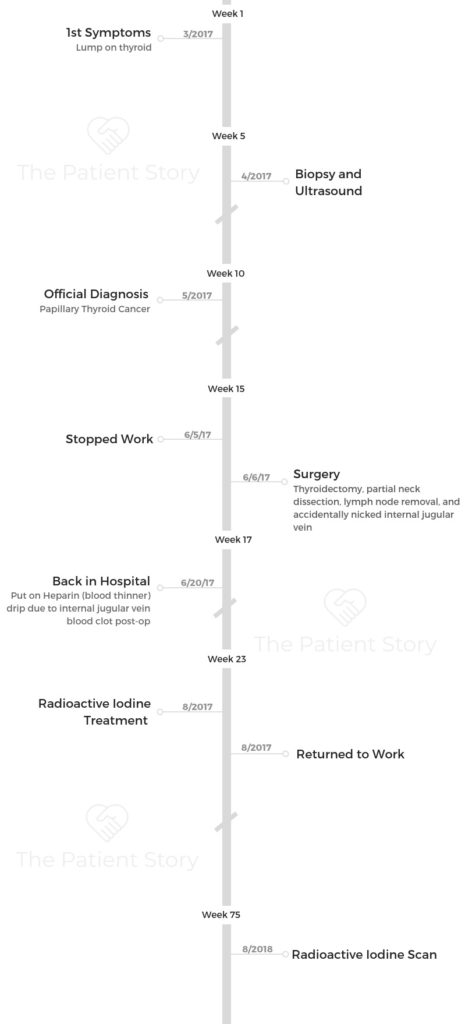
In the moment, you just kind of do what you have to do and you get through it. I had to be fine in the moment, I had to put all the emotions on the back burner and just get through it.
Sarah J.
- Diagnosis
- Describe your first symptoms
- What was your diagnosis experience like
- How long did you wait for the test results
- Describe the fine needle aspiration (biopsy)
- How did you break the news to your loved ones
- Did you get a second opinion
- How did you decide where to get cancer treatment
- Was there anything you wish you had known at this point
- Surgery (Total Thyroidectomy)
- Radiation (Radioactive Iodine Treatment)
- Quality of Life
- Were there any surprises you experienced in your treatment
- What was the worst thing you experienced during your treatment
- What got you through the stressful times
- Were there any moments where you had to advocate for yourself
- Did you go through any fertility preservation procedures
- How important is it to have caregivers
- What advice would you give to other patients on how to deal with loved ones during treatment?
- Paying for cancer treatments
- Can you describe the new "normal" following cancer
- What advice do you have for other cancer patients who are going through a similar experience as you?
This interview has been edited for clarity. This is not medical advice. Please consult with your healthcare provider for treatment decisions.
Diagnosis
Describe your first symptoms
I didn’t really have any that I noticed, honestly. I went to my primary care physician because I had a really sore throat. I wanted to make sure it wasn’t strep throat so I went in for a strep test.
The doctor was prodding around my neck and was asked if anyone had ever told me about my thyroid being enlarged. And I was like “No, I honestly didn’t even know where my thyroid was.” He said it was enlarged and probably nothing, but recommended that I get an ultrasound.
The symptoms of thyroid disorder can easily be masked as other things – weight gain, weight loss, slight changes in your voice, exhaustion, or high energy.
I may have had symptoms, but I never noticed them as something that was thyroid-related.
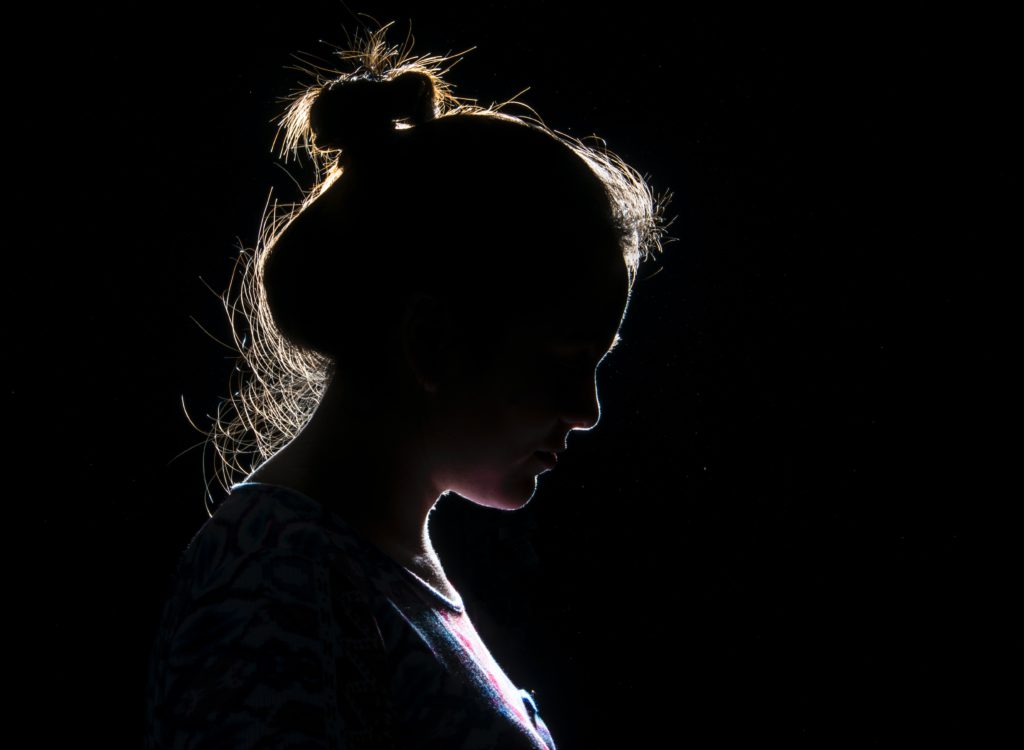
What was your diagnosis experience like
Crying a lot. I had a couple of appointments before I was diagnosed. I had the appointment where I went and got the strep test and they sent me for an ultrasound.
I’m an anxious person to begin with, and just being on the ultrasound table was anxiety-inducing. They wouldn’t tell me anything, which I mean the tech is not going to make a diagnosis or anything.
I just remember being super anxious sitting there getting the ultrasound. Then I had to get a biopsy in another couple of days. A couple of days or a week after that, I finally got diagnosed.
By that point I was such a ball of stress. I remember my endocrinologist who had diagnosed me, to her credit, kind of ripped the bandaid off.
She said, “Sorry, you’ve got cancer,” and so I cried a lot and she gave me a second, and then went right into treatments. That was good that I was able to find out what the next steps were right away.
I think I kind of went right into survival mode. I remember later that day just being like, “Okay, we’re going to do this, you’re going to be fine.”
You have to kind of put the emotions away and just get through the treatment. Crying a lot and shutting it all off.
How long did you wait for the test results
It’s all kind of a blur. It was maybe March or early April I went for the strep test. Over the next couple of weeks to a month, I got various tests.
In May, I got my diagnosis, and in June, I had surgery. It all happened quickly, but it’s all kind of a blur.
»MORE: Patients describe dealing with scanxiety and waiting for results
Describe the fine needle aspiration (biopsy)
Not my favorite. At that point I was anxious and fearing the worst. Everybody was really nice, and the doctors were really good about explaining what was going to happen and talking me through it.
But at the end of the day, they’re sticking a needle in your neck and moving it around and scraping it around to get what they need. That was really unpleasant.
How did you break the news to your loved ones
My boyfriend was with me when I got the diagnosis, which was really great; I would not want to have done that alone.
I called my dad in the car driving home from the doctor’s office. He was kind of all business about it. My mom is a teacher so I couldn’t call her right away.
My dad said he would tell her when they both got home. I think she outwardly took it the worst. He said “I’ll let her know and she’ll call you later tonight.”
So I was waiting and waiting for her to call, and eventually I texted my dad, “Is everything okay? I haven’t heard from mom,” and he said, “Yeah, she needs a minute.” She took it the hardest.
They told the rest of my immediate family, (starting with) my grandparents. I told a couple of friends via Skype, and then eventually I was like “I can’t keep doing this. I can’t keep telling people individually.”
I did the very 21st century thing and wrote a Facebook post. I just needed it to be out there and not have to tell people individually as I saw them.
»MORE: Breaking the news of a diagnosis to loved ones
Did you get a second opinion
I didn’t. Everybody seemed very sure. It wasn’t like it might be cancerous so we’re going to do this to be safe. It was like it’s definitely cancerous, it’s a big tumor, and we just have to get it out.
I think at that point even if they had said it’s a possibility, I would’ve said to just take it out. I don’t want to live with the maybe.
How did you decide where to get cancer treatment
I’m really lucky that at that point I lived in Boston which has some really amazing hospitals. I was in the Beth Israel network just through my primary care doctor. All of my treatment was through Beth Israel, which was just kind of a stroke of luck based on where I chose my primary care doctor.
My endocrinologist – I don’t remember how I got her, but she set me up with a surgeon and said, “We’re going to try to get you in with this one surgeon. He’s the one that I would want to do my surgery if I had this.”
I was like “All right, I don’t have the brain power to do any real thinking for myself.” She was really great and I trusted her, and he was fantastic.
Was there anything you wish you had known at this point
I think at that point I did what I had to do. I just buckled down and did it.
I wish I had known that just because I felt okay in that moment emotionally, doesn’t mean that I was okay.
Especially when I was telling friends and coworkers, I downplayed it because I didn’t want people to freak out or feel sorry for me. I was like, “I’ve got cancer but it’s fine! Everybody says this is the one to get, haha! What a joke!”
It was a defense mechanism at the time, and that’s fine. I did what I had to do.
But it meant that later on when everything had settled down, I had to face all the emotional trauma that I was not able to face in the moment.
I think it made it harder to go about my life because everybody thought I was fine.
I wish I had gone to therapy right away. It took me over a year and a half and I probably should’ve been seeing someone right away.
Surgery (Total Thyroidectomy)
Describe the surgery
They took the entire thyroid, and partial neck dissection, which sounds really terrifying, but it means they took out a bunch of lymph nodes.
The cancer had spread a bit to some of the lymph nodes and they ended up taking more as they were in there.
At that point I was in business mode, so I wasn’t super nervous about it, but it was supposed to be like a three hour surgery. It ended up taking longer than they thought because they had to take more out than they anticipated.
They also nicked my internal jugular vein while they were in there, which has led to many complications. That was tricky. They had to tie off my vein.
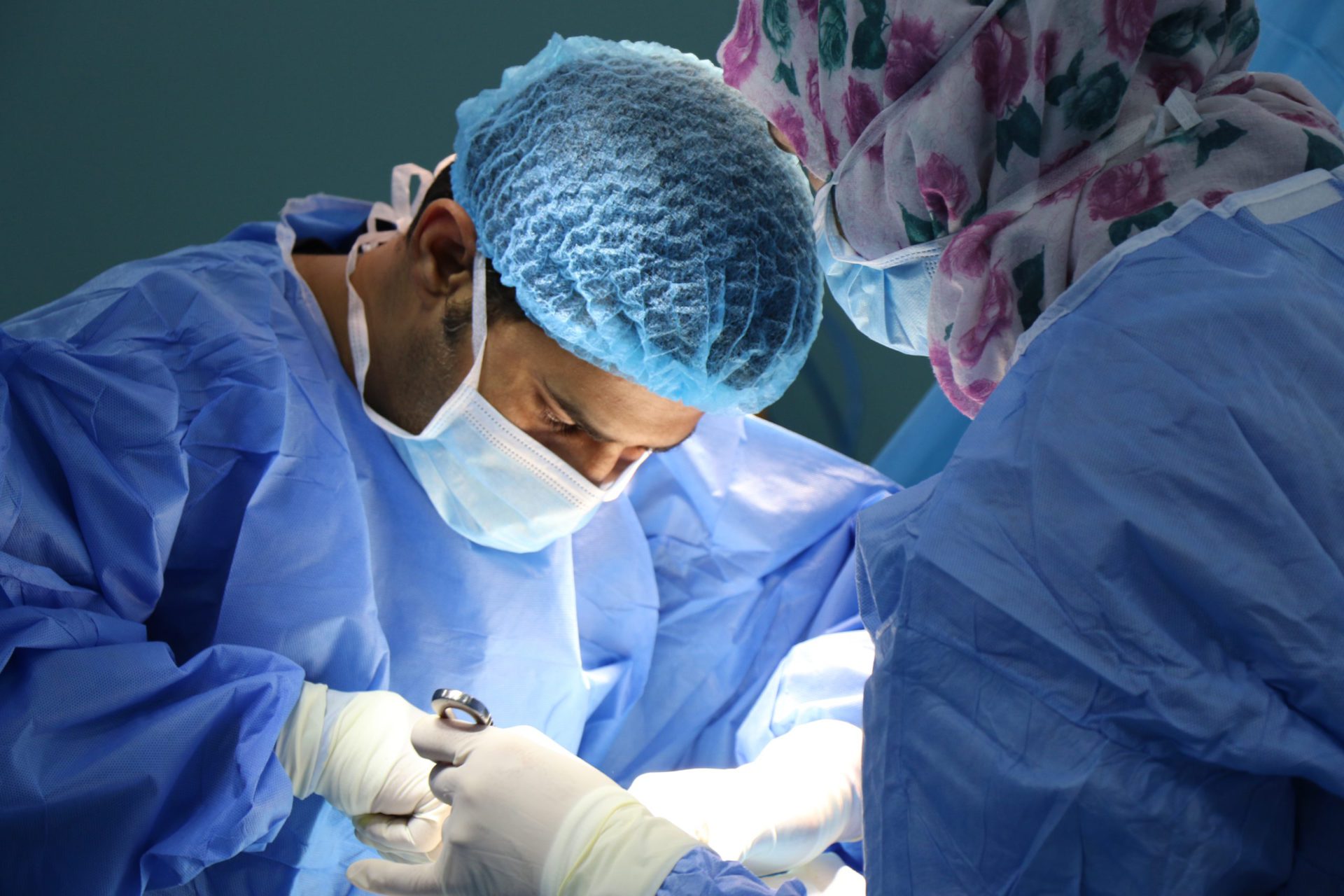
The thyroid has things on it called the parathyroids which they were hoping to save as many as possible. There are four of them on each corner of the thyroid. They had to take out one completely and saved two.
They weren’t able to totally salvage one, but they took it out, ground it up, re-injected it in, and it grew a new one – which apparently the surgeons didn’t even know they could do, so that was fun.
That has to do with calcium absorption, so I had to deal with some low calcium for a while. That’s always great to hear after a surgery, like “We didn’t know we could do this!” But the surgery was fine.
They were hoping to send me home the same day but I ended up having to stay over night because my calcium was pretty low and I lost more blood than they had anticipated.
I was working part-time at the time because I was a grad student, so I was planning on taking a month off. I stayed in bed basically for two weeks afterwards.
»MORE: Working during cancer treatment
What do you remember from waking up after the surgery
I don’t remember right away, but I remember one of the nurses in the area where you wake up helping me walk to the bathroom. I had passed out on the toilet because I had lost some blood, so that was not great.
They brought me back to bed and then I just remember my family coming in and seeing them. It’s all kind of a blur.
»MORE: Read more patient experiences with surgery
What were the side effects you experienced
My calcium was low for a while because I only had two really functioning parathyroids at the time. I had to be on calcium supplements and Vitamin D supplement for a while afterwards.
I’m still taking the Vitamin D, but not the calcium. I had to take another medication to help with calcium absorption, a prescription med, for a while afterwards.
My neck was really swollen, and I remember the worst part was trying to sleep with it because I couldn’t lay down flat. I had to be propped up on a bunch of pillows, and trying to sleep sitting up was really uncomfortable. My neck was swollen and I couldn’t really turn it and it just looked really gross.
They had the strips over the scar to keep it closed and they would get gross, and I just did not feel like myself at all. I was so swollen and puffy and I didn’t feel great about myself.
They had put me on artificial thyroid hormone medication right away but my thyroid hormone levels were really low because they had just taken it out.
One of the major symptoms of hypothyroidism is depression. Looking back on it, I was really depressed just because my body wasn’t getting the thyroid hormones.
I remember sitting in bed all day and thinking, “I just need to get through the day and then I can go to sleep.”
How long did recovery take
I went back to work after a month. It was really complicated by a blood clot and all the treatments that came with that. I don’t know how it would’ve been if I had been just purely recovering from the surgery.
I think I probably would’ve gotten better faster because a lot of the swelling and discomfort was because of the blood clot.
I was back to work after a month and doing okay. Probably after a couple of weeks I was able to move around and do things.
Radiation (Radioactive Iodine Treatment)
Describe the radioactive iodine treatment
My surgery was in June, and I had the radioactive iodine treatment in August. You have to go on a low iodine diet before you get the radioactive iodine treatment just so the absorption is as high as it can be.
Apparently my iodine levels were really high because I ended up being on the iodine diet for 6 weeks. It was horrible – would not recommend that diet, you can’t eat anything. So six weeks of eating really boring food and then four days in a row you have to go in to prepare for the radioactive iodine treatment. It’s two days where you get a shot to prepare your body for it and a couple pills you take, and then you get the dose.
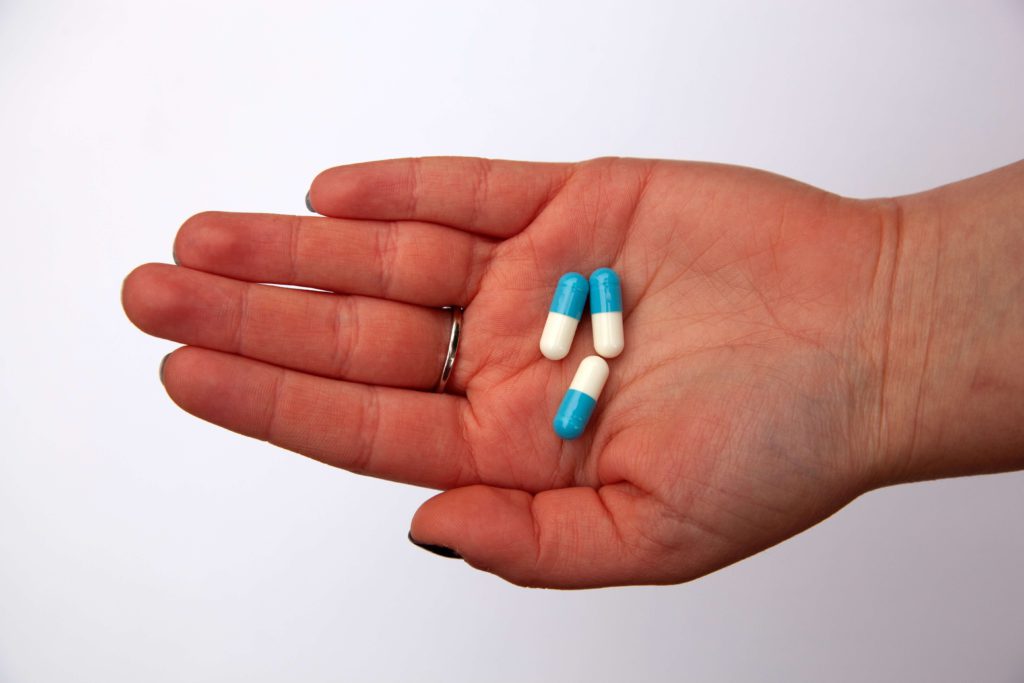
Isolation Requirement
Then I had to be in isolation for three or four days. I ended up going to my parents house because they have a little more space.
At that point, I was living with my boyfriend, two roommates, and our cat, and I knew I wasn’t going to be able to stay far enough away from people in our apartment, so I went up to my parents.
I know some people end up having to be in an isolation room, but my doctor said I have to be six feet away from people.
I drove myself home and stayed six feet away from my parents; stayed in a room basically most of the time. After three or four days I went back to my apartment.
Scans during radiation
They did a scan during that four day period of preparation. They give you like a small dose of the radiation, just so they can see where it lights up to get a ‘before’ shot. A couple weeks afterwards I went back and did it again to see if anything was left. That whole scan process was really stressful for me because we didn’t know how far the cancer had spread.
There had been a good amount of lymph nodes in my neck, the tumor was quite large and it had probably been growing for many years. I didn’t know if it had spread to the rest of my body.
Luckily it had not, which was great. There’s nothing below my neck. I went back for another scan after the iodine treatment. There was a little bit of uptake but it was basically all gone. That doesn’t mean I’m cancer-free or anything, but that was good.
Radiation regimen
It was just the one dose. It’s not like a chemo treatment when you have to go over and over. It’s one big dose.
I did the scan portion, not the full radiation treatment, again last summer just to see if there was any serious uptake. It’s a shorter version of the low iodine diet and a small amount of radiation to do the scan, not a full radiation treatment.
»MORE: Read other patient experiences with radiation therapy
Side effects you from the radioactive iodine pill
I was nauseous a little bit, but I knew that was a possibility. It kind of swells your salivary glands so my jaw was sore. But again these were all things I knew were a possibility and I just kind of had to ride them out.
I don’t think they affected me for more than the first day. Honestly, the worst part of the radiation treatment was the low iodine diet.
“By the end I just didn’t even want to eat. I was so tired of eating the same flavorless food.
There are different versions of the diet that people will get recommended but the one my doctor gave me was really restrictive. It took all the joy out of eating for six weeks.
Quality of Life
Were there any surprises you experienced in your treatment
Not really. It all happened so fast that I feel like I just went along for the ride. I didn’t have a ton of time to think about any of it. From diagnosis to surgery was less than a month, so I was just in survival mood and didn’t give it much thought. It was all unexpected but I don’t know that any of it was a surprise.
What was the worst thing you experienced during your treatment
Hearing the diagnosis was horrible, just shattering. You just kind of go along and do what you have to do. It’s been hard coming to terms with everything later. In the moment, you just kind of do what you have to do and you get through it.
I had to be fine in the moment, I had to put all the emotions on the back burner and just get through it. Later when I had time and energy and burn space and the worst was behind, coming to terms with all of the emotions I hadn’t dealt with at the time. It was really hard emotionally.
Realizing that I wasn’t fine was like a double whammy of all of the emotions and the change in how I thought about myself.
I thought about myself as so strong and so brave. I thought, “Don’t even worry about it, I’m going to get through this.” Realizing all that was just a defense mechanism was really hard.
What got you through the stressful times
I eventually started going to therapy – it took longer than it should have and I should go back. My boyfriend has been really great. With most people I can put on a brave face, but with someone who sees me all day, everyday, that’s not really possible, so he’s been a big help.
I feel like I still haven’t entirely dealt with and I’m still not dealing with it as best I can, so I probably need more therapy.
Were there any moments where you had to advocate for yourself
When I was feeling the symptoms of the blood clot, my surgeon initially was like, “No it’s probably fine, you’re probably okay.”
Something wasn’t siting right. I just kept emailing him, calling him, texting him, with all the things I was feeling, and eventually he sent me to see somebody, thank god.
In my head I’ve always been a little bit of a hypochondriac like “Is this okay? Am I feeling okay?” This has kind of justified that a little bit for me.
Sometimes something is wrong, so don’t be shy about talking about the things that you’re feeling.
On the flip side, that’s definitely made that part of me worse. In the past I had always been able to say “It’s probably nothing. The chances of it being something terrible are so small.”
When they initially told me my thyroid was enlarged, they said “Don’t worry, it’s like a one-percent chance it’s cancer.” Well, I’ve now been that one-percent.
So in every instance in the future when I’m like, “Oh, it’s such a slim chance there’s anything wrong,” I think, “Well, you’ve been that one-percent before.”
It’s made my medical anxiety worse because now I feel like it’s justified. That’s something else I’m trying to reconcile wsith and get to a reasonable point. For advocating for myself, in general, taking my feelings seriously and taking the things I notice in my body seriously.
»MORE: How to be a self-advocate as a patient
Did you go through any fertility preservation procedures
No, that was one of the questions I asked when I was diagnosed, whether it was going to affect any future children I might have. They said “No, it’s not a genetically passed down thing.”
But because of the radiation treatment, I ended up getting an IUD just to be safe because I could not get pregnant for a year after the radiation treatment. I didn’t end up getting any sort of fertility treatment.
Nobody seemed concerned about it at the time and nobody was saying that it could seriously impact my ability to have kids. Honestly, I just wasn’t thinking about it.
»MORE: Fertility preservation and cancer treatment
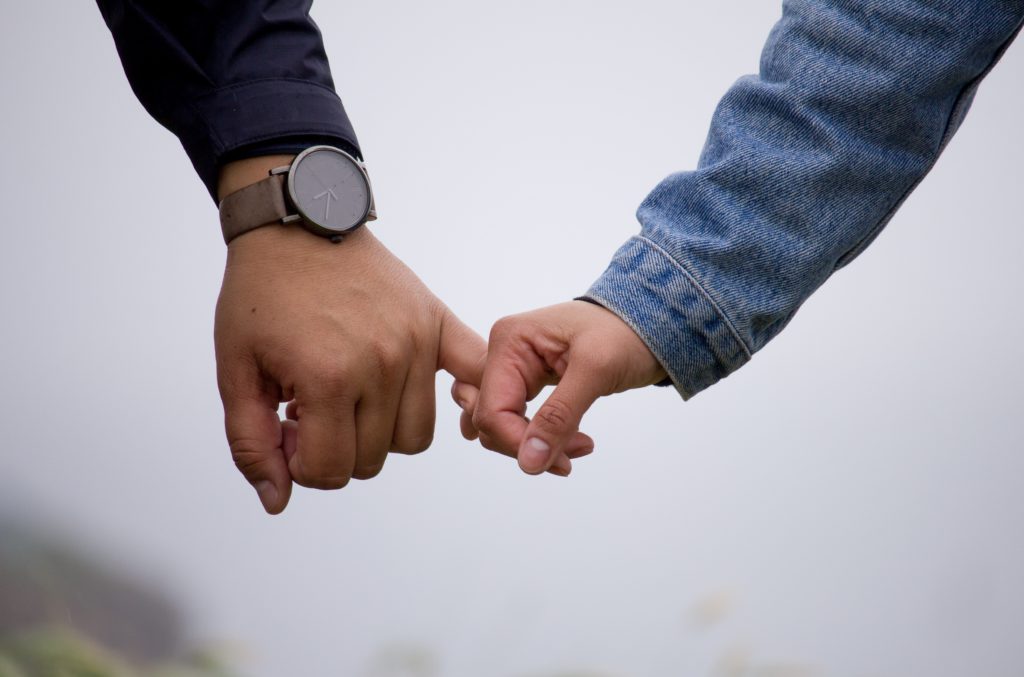
How important is it to have caregivers
Extremely. My boyfriend has been amazing. Just having him go through this with me and see all the things that are happening, even if he doesn’t totally understand what I’m going through because it’s not possible for someone else to understand what you’re going through, just having him there to experience my feelings with me; he’d gone to most of my doctors’ appointments with me.
Just having another person in the room when you’re at the doctor has for me, been huge.
I tend to be the type of person who will just say “Okay, yeah whatever you think. Yup. Sure, let’s do that.” Even if I have questions going in, they tend to go out of my head as soon as we start talking.
He would be really good about writing all of his questions down and making sure that we asked every question that we had and got satisfactory answers. He would write down the answers and refer back to it and that was huge.
What advice would you give to other patients on how to deal with loved ones during treatment?
Tell them what you need because I think people’s’ instincts are to kind of overbear and smother and just really over-care. If that’s not helpful to you as a patient, then you need to find a way to say that.
I had an instance where I was going in for one of the scans to see if the cancer had spread at all. As a backstory, my mom had really beat herself up that she wasn’t there when I was diagnosed.
Even though we didn’t know that was going to happen and it wasn’t on anyone’s radar, she was really upset with herself that she wasn’t in the room with me when that happened.
She’s been really good about offering to go to appointments with me, but for this particular appointment I was really anxious going in because I didn’t know what the scan was going to show.
I knew that with her, because she was also really anxious, I was going to be focusing on taking care of her in that moment, and I realized that was not what I needed to be doing.
I need to take care of myself and not worry about how someone else is feeling. That sounds kind of callous, but I didn’t have the emotional capacity to deal with someone else’s appointments.
I figured out had a different appointment the next week that was a little bit lower stakes, so I said to her, “I’d really appreciate it if you could come to this other one with me. I’d love to have somebody else in the room.”
For the appointment that I was really worried about, I asked my boyfriend to come because he is much more chill about it – I’m sure he was also worried – but he is more outwardly chill about it.
My advice would be don’t feel bad about putting yourself first and if there’s somebody in your life where their way of caring is not going to be helpful in a particular moment, that is okay.
You can find a way for them to feel and be helpful that is not going to put more burden on you.
Paying for cancer treatments
I was really lucky. I had this really crappy insurance through our state and it ended up being amazing. The financial burden was very low, which I’m really grateful for. The surgery ended up costing me like $50 and I know I’m super lucky about that.
The copays and the medication and everything adds up, especially when I had three doctors appointments in a week. But even then, the copay is like $25 and the medication is like $20 – so it adds up, but it’s not a burden and I’ve been really lucky in that way.
Can you describe the new “normal” following cancer
I feel like I’m still figuring that out. I’m not where I want to be at this point. It’s been two years since I had the surgery and everything, and I kind of really went into myself as a defense mechanism.
I can’t deal with a lot of things and I just need to go inside and focus on myself. It’s hard to come back out of that. I’m not a particularly outgoing person and I’ve never been super great at staying in touch with friends, and I feel like this has made me worse at that. It’s hard to reach out now that it’s been so long.
I feel like I’ve shut down all the nonessential functions in my life and now trying to get everything back up and running can be kind of overwhelming. I’m trying to work on it and put myself out there a little bit more and get back into doing other things.
But for a while it was go to work, come home, hang out home, see my family sometimes, see a friend once in a while, but we circled the wagons a little bit, and now I’m trying to find the normal, and I don’t think I’m there yet.
What advice do you have for other cancer patients who are going through a similar experience as you?
Do some therapy. Find something that works for you and do that because the emotional toll is greater than you think.
It’s not weak to ask for help and you have to be brave and think of yourself as this impenetrable armor, but go talk to somebody. It’s a lot and for me, it really snuck up on me, the emotional toll. Definitely get some therapy.
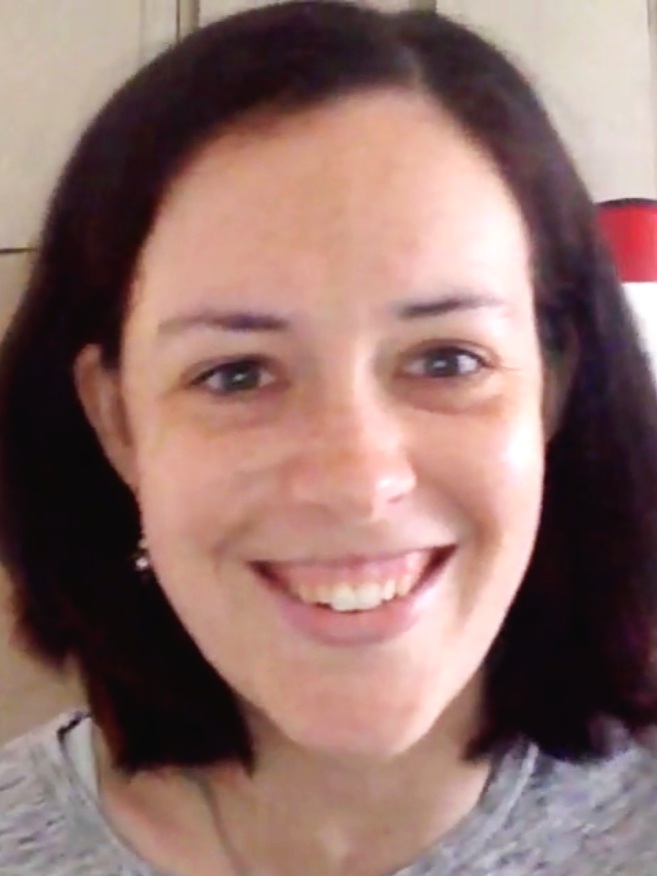
Inspired by Sarah's story?
Share your story, too!
Thyroid Cancer Stories (Under 55)
Cyndi F., Thyroid Cancer (Papillary Thyroid Carcinoma), Stage 1
Symptoms: None per se, nodules discovered during thyroid examination
Treatments: Surgeries: hemithyroidectomy, isthmusectomy, mid-neck dissection, parathyroid transplant
...
Laura C., Follicular Lymphoma, Stage 4 (Metastatic), Grade 1 to 2; Papillary Thyroid Carcinoma
Symptoms:Incidental finding after hysterectomy (follicular lymphoma), thyroid nodule detected on imaging (papillary thyroid carcinoma)
Treatments: Immunotherapy (rituximab and lenalidomide or R² regimen), surgery (thyroidectomy)
...
Alyse V., Thyroid Cancer (Papillary Thyroid Carcinoma, Tall Cell Variant, Metastatic)
Symptoms: None per se, lump discovered during thyroid examination
Treatments: Surgeries (neck dissection, lymphadenectomy), integrative therapies
...
Valerie V., Thyroid Cancer (Papillary Thyroid Carcinoma), Stage 4 (Metastatic)
Warning Signs: Bruising, extreme fatigue, cold intolerance, weight loss
Treatments: Surgeries (total thyroidectomy, neck dissection, lymphadenectomy), radiation therapy (radioactive iodine therapy), hormone therapy (thyroid hormone suppression therapy)
...
